Programs Offered
B.Tech (CIVIL)
Intake – 60
M.Tech
(Structural Engineering)
Intake – 24
Core Competencies
- Structural Engineering
- Geotechnical Engineering
- Water Resources Engineering
- Earthquake Engineering
- Transportation Engineering
- Environmental Engineering
Vision
To be a pioneer in carving out world class civil engineers.
Mission
- To create productive environment for the graduates to be competent globally.
- To foster dedicated innovative teaching and learning environment by emphasizing planning and design aspects of civil engineering problems through lifelong learning.
- To establish centre of knowledge in emerging areas of civil engineering in collaboration with industry.
About CIVIL Department
Overview
The Department of Civil Engineering founded in 2013, built a reputation for equipping students with the most complete education & hands-on research. The approach makes learning exciting and prepares students to have amazing opportunities. The faculty team with award winning senior professors encourages the students for holistic development.
The practical focus is reinforced in all the courses. The curriculum inclusive of students working in proximity with faculty facilitates mastery of in-depth domain knowledge.
The students’ academic achievement and impressive placements is a testament for the high acclamation of the department. The vast professional body initiatives and industry connections create an environment for the students to gain expertise that leads to demanding careers filling the expanding industry needs. The department always believes the Industry institute interaction and has great focus on structured internship in core and interdisciplinary domain to make the students be a industry ready for the future career.
Prominent Features
- Awarded Outstanding ICI Student Chapter Category of Telangana by Ultratech Concrete Excellence awards for Year 2020.
- Honored with Best student chapter award in Concrete Excellence Award from Indian Concrete Institute, 2019
- Inaugurated ICI Knowledge Centre for Telangana region on 14 September 2019 to promote Industry Institute Interaction
- Expertise in structural Engineering, Geotechnical Engineering & water recourses Engineering
- Centre of Excellence in Lean Manufacturing practices in collaboration with Lean Technocrats
- 5 Doctorates and 9 faculty pursuing PhD
- Emphasis on Outcome Based Education with demonstrative learning approach
- Well-equipped physical laboratories with basic & advanced equipment and software’s like STAAD Pro, SAP and AutoCAD, Oasys Slope19
- ICT enabled classrooms
- Strong industry interaction with both leading institutes and construction companies
- Well-designed and highly disciplined internship programs make students industry-ready
- Blended teaching learning approach with innovative methods in day to day teaching
- Active MoUs for exposing students for Field visits, Training programs, industry oriented technical sessions, internships & placements.
- Motivation to the students to carry out industry oriented projects under the guidance of industry expert.
- Operative in professional body activities
CIVIL Team
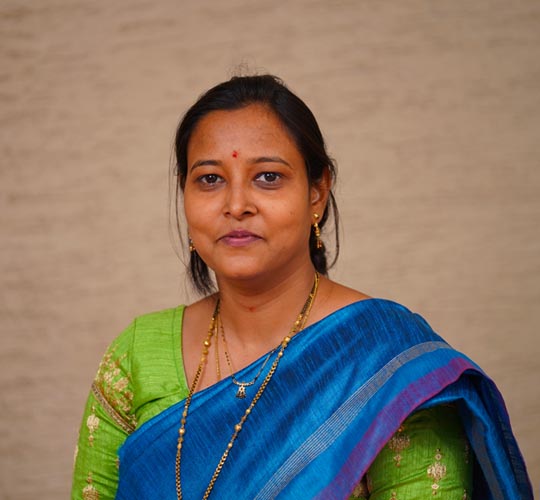
Dr. Pallavi Badry
BE(VNIT), Ph.D(IIITH)
Head of the Department
Dr. Pallavi Badry completed Bachelor degree in Civil Engineering from Visvesvaraya National Institute of Technology, Nagpur and Ph. D in Geotechnical Earthquake Engineering from IIIT Hyderabad. She has more than 15 years of experience in teaching, research and industry. Her expertise in research benchmarked with around 50 technical papers in indexed journals and in National and International peer-reviewed conferences. She guided 50+ BTech students and 15 Mtech students and 1 PhD student. She has 3 book chapters, 1 book and 1 International patent on her credits.
She published her research in several countries like Japan, Turkey, France & Egypt. She is the recipient of International travel grant in year 2014 and 2018 by SERB Prestigious International travel grant. She served as a Resource Person for several Faculty Development programs, workshops, internships within the state and other states. She delivered invited lectures in several short courses conducted at IIITH, training for trainee engineers from Govt. of Telangana and Andhra Pradesh, CRHRDI on safety and Geotechnical aspects of the design of superstructures. She is a life member of IGS and mentor for ICI student chapter at Vidya Jyothi Institute of Technology. Under the guidance Civil Engg Department students received Best students chapter award in a year 2019 and 2020 by ICI. She is awarded as Young Concrete Engineer for the state of Telangana for a year 2020 for Concrete Excellency awards series. She is a very active and efficient faculty who introduced several employability and bridge courses in curriculum of B. Tech and M. Tech curriculum.
Faculty Members
| Faculty Name | Qualification | Designation |
| Dr. Pallavi Badry | Ph.D | Professor and HOD |
| Dr. E.Sai Baba Reddy | Ph.D | Professor and Principal |
| Dr. Saduwale Shrihari | Ph.D | Professor |
| Dr. N Sudharsan | Ph.D | Professor |
| Dr. P. Rajasekar Reddy | Ph.D | Associate Professor |
| Mr. Ashwin Kumar M | M.Tech | Assistant Professor |
| Mrs. Tirumala Deepika | M.Tech | Assistant Professor |
| Mr. E Giri Prasad Goud | M.Tech (Ph.D) | Assistant Professor |
| Mrs.T Sarada | M.Tech (Ph.D) | Assistant Professor |
| Mr. G Ratnakar goud | M.Tech | Assistant Professor |
| Mrs. V Swathi | M.Tech (Ph.D) | Assistant Professor |
| Mr. Vithal | M.Tech (Ph.D) | Assistant Professor |
| Mrs. K Roja | M.Tech | Assistant Professor |
| Mrs. Gedela Sreeja | M.Tech (Ph.D) | Assistant Professor |
| Mrs. Muddana Mounika | M.Tech (Ph.D) | Assistant Professor |
| Mrs. Thirumala Sujatha | M.Tech | Assistant Professor |
| Mrs. V Navodaya | M.Tech | Assistant Professor |
| Mrs. Dhanasure Pooja | M.Tech | Assistant Professor |
| Mrs. B. Divya vani | M.Tech | Assistant Professor |
| Mr. Anand | M.Tech | Assistant Professor |
| Mr. G Uma Shankar | M.Tech (Ph.D) | Assistant Professor |
| Mr. Saikiran | M.Tech | Assistant Professor |
| Mrs. Vajenepally Nikhila Bhavani | M.Tech | Assistant Professor |
| Mrs. Kurapati Harika | M.Tech | Assistant Professor |
| Mr. Rahul Patil Patlolla | M.Tech | Assistant Professor |
| Ms. Rebba Abhigna | M.Tech | Assistant Professor |
| Mrs. Kurupati Sireesha | M.Tech | Assistant Professor |
| Ms. Neerudu Bhumika Samyuktha Priyadarshini | M.Tech | Assistant Professor |
| Mr. Pasupuleti Rohith Kumar | M.Tech | Assistant Professor |
Outcome Based Education
PEO's
PEO1: To prepare graduates to solve field problems by applying basic mathematical and scientific principles.
PEO2: To prepare graduates as professional engineers by teaching them optimum planning, design, analysis with recent technologies.
PEO3: To empower graduates to explore multidisciplinary corridors emphasizing on environmental and sustainability issues.
PO's
Engineering Graduates will be able to:
- Engineering knowledge: Apply the knowledge of mathematics, science, engineering fundamentals, and an engineering specialization to the solution of complex engineering problems.
- Problem analysis: Identify, formulate, review research literature, and analyze complex engineering problems reaching substantiated conclusions using first principles of mathematics, natural sciences, and engineering sciences.
- Design/development of solutions: Design solutions for complex engineering problems and design system components or processes that meet the specified needs with appropriate consideration for the public health and safety, and the cultural, societal, and environmental considerations.
- Conduct investigations of complex problems: Use research-based knowledge and research methods including design of experiments, analysis and interpretation of data, and synthesis of the information to provide valid conclusions.
- Modern tool usage: Create, select, and apply appropriate techniques, resources, and modern engineering and IT tools including prediction and modeling to complex engineering activities with an understanding of the limitations.
- The engineer and society: Apply reasoning informed by the contextual knowledge to assess societal, health, safety, legal and cultural issues and the consequent responsibilities relevant to the professional engineering practice.
- Environment and sustainability: Understand the impact of the professional engineering solutions in societal and environmental contexts, and demonstrate the knowledge of, and need for sustainable development.
- Ethics: Apply ethical principles and commit to professional ethics and responsibilities and norms of the engineering practice.
- Individual and team work: Function effectively as an individual, and as a member or leader in diverse teams, and in multidisciplinary settings.
- Communication: Communicate effectively on complex engineering activities with the engineering community and with society at large, such as, being able to comprehend and write effective reports and design documentation, make effective presentations, and give and receive clear instructions.
- Project management and finance: Demonstrate knowledge and understanding of the engineering and management principles and apply these to one’s own work, as a member and leader in a team, to manage projects and in multidisciplinary environments.
- Life-long learning: Recognize the need for, and have the preparation and ability to engage in independent and life-long learning in the broadest context of technological change.
PSO's
PSO1:Proficiency in Core subjects The graduates of this program will be able to demonstrate proficiency in the core areas of Structural, Geotechnical and Water Resource Engineering.
PSO2:Professional Proficiency The graduates will be able to design and implement alternate Civil Engineering solutions to the real-world problems.
Life @ CIVIL Department
Facilities
- Model lab
- ICT Facilities
- ICI Knowledge centre
- Project Laboratory
- Department Library
Events / Activities / News
Stay connected and informed with latest engineering news and events, and engage with the college community.
Congratulations!
Civil Engineering Final year students awarded Third position in the Two Week Practice Oriented Internship Program on...
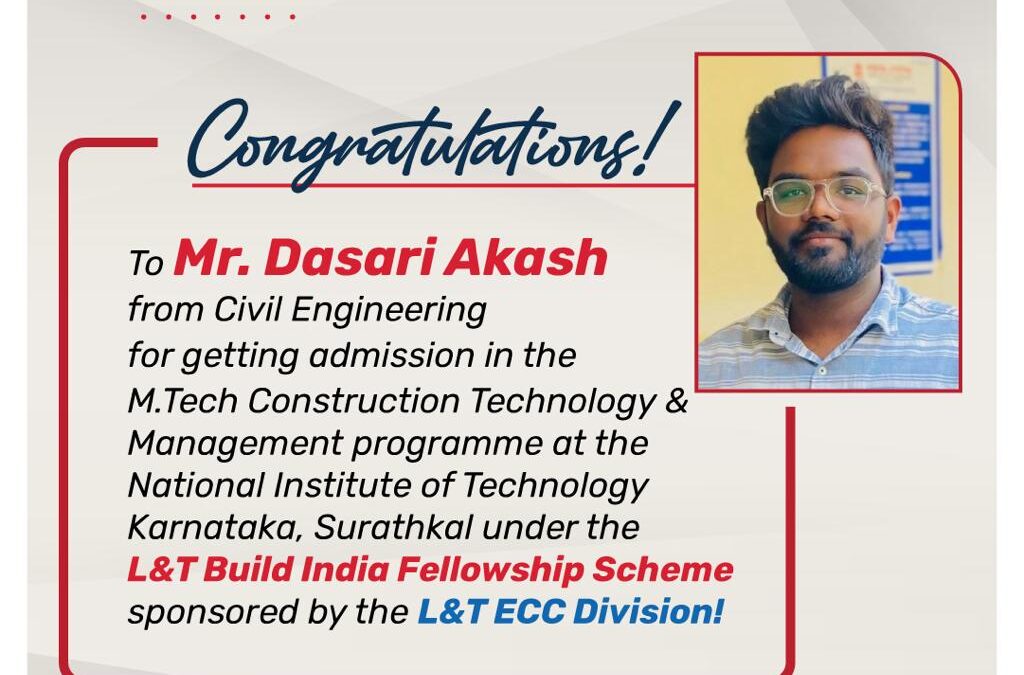
Congratulations!
Congratulations to Mr. Dasari Akash, Civil Engineering Student (20915A0104 ) for the selection in National Institute...
Received Young Engineer Award & Best Thesis Award by ACCE(I)
Celebrating Remarkable Achievements at VJIT! A heartfelt congratulations to our outstanding individuals: Dr....
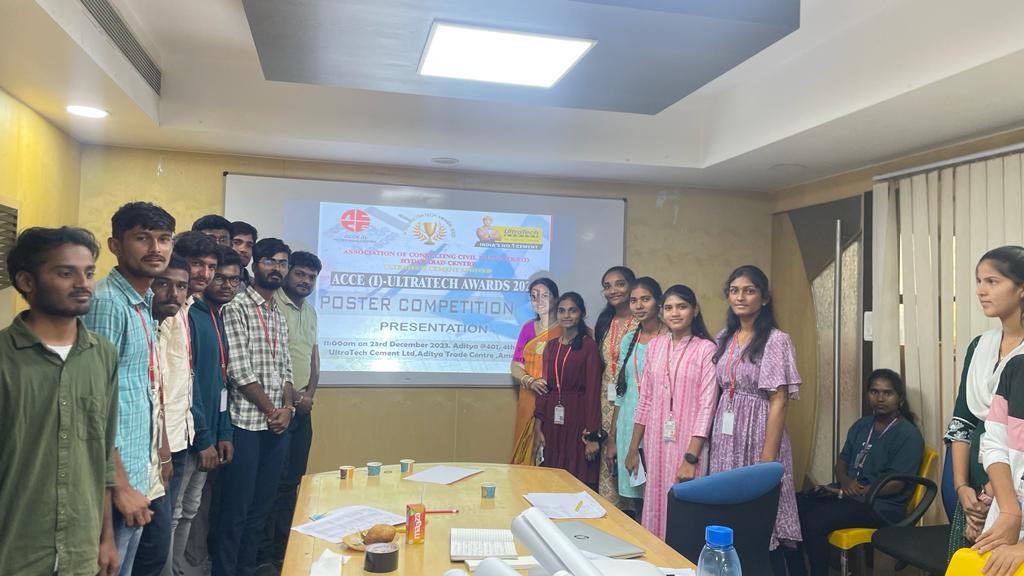
Poster Competition
Department of Civil Engineering VJIT, second year & Final year students had participated in Poster Competition...
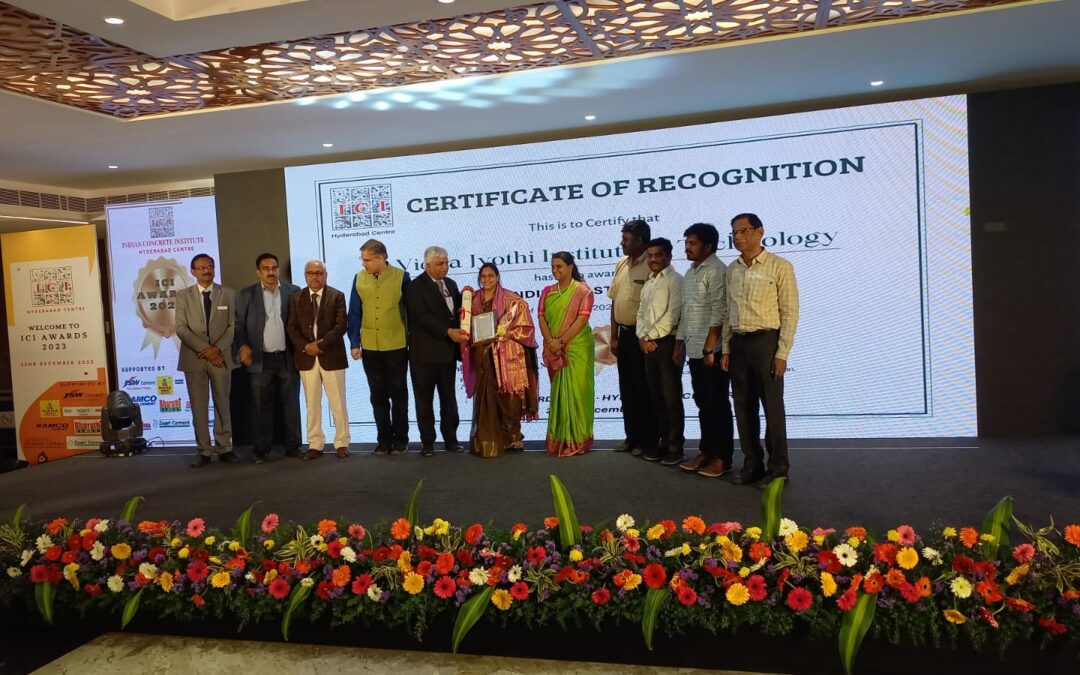
ICI Student Chapter Award at Telangana level from Indian Concrete Institute (ICI) HYDC
Civil Engineering department, VJIT Received Outstanding ICI Student Chapter Award at Telangana level for the year 2023...
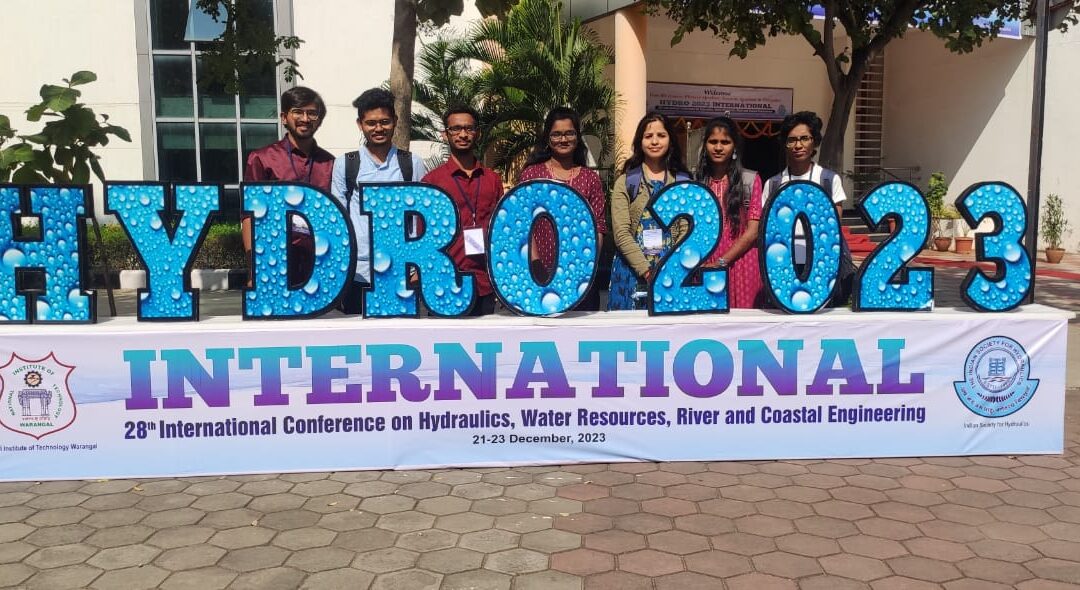
HYDRO 2023 Conference
It is prestigious to be a part of HYDRO 2023 INTERNATIONAL, 28th International Conference on Hydraulics, Water...
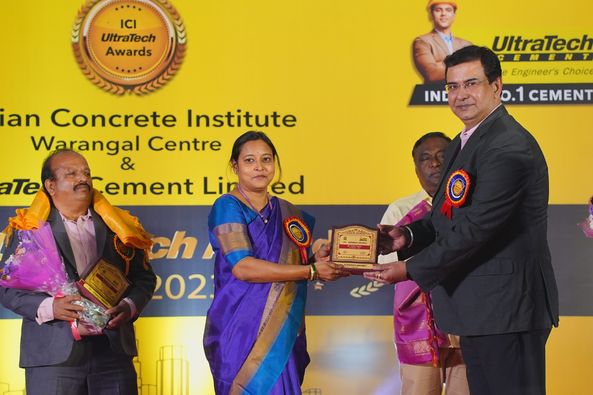
Jury Member for ICI-ULTRATECH awards
Dr. Pallavi Badry, HOD of Civil Engineering Department, VJIT, was Very submissive to be a Jury for the prestigious...
Congratulations
Our Civil Engineering Department, VJIT, UG student Mr. Vishal, Volleyball team put up an outstanding performance at...
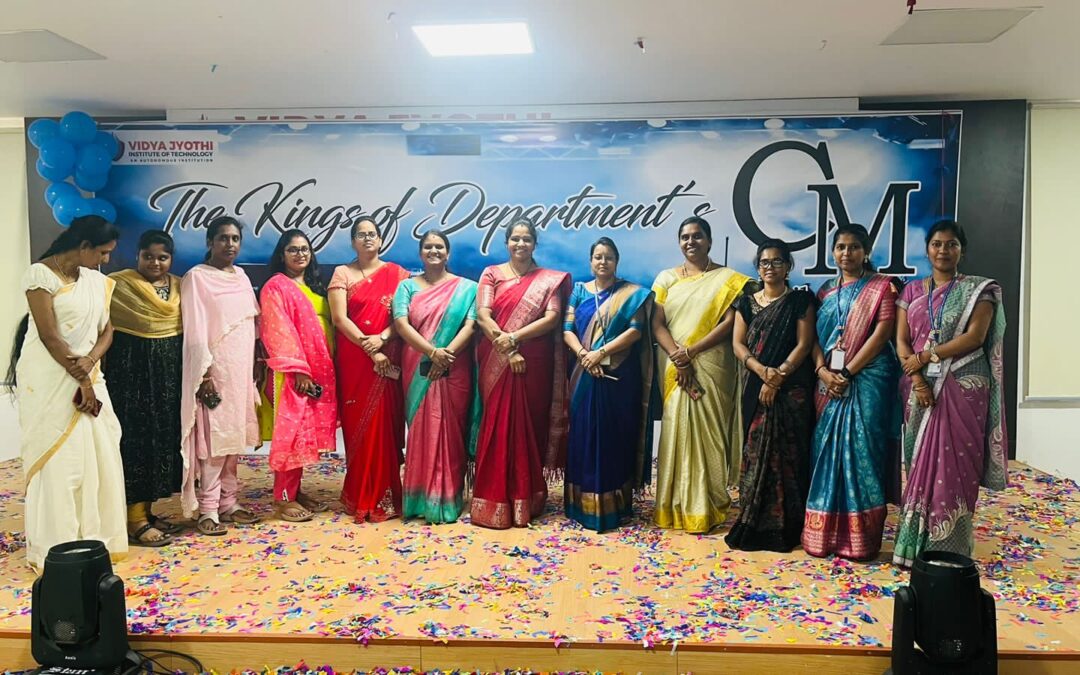
Freshers day 2023
The Civil Engineering Department celebrated Freshers day on 7th October 2023.
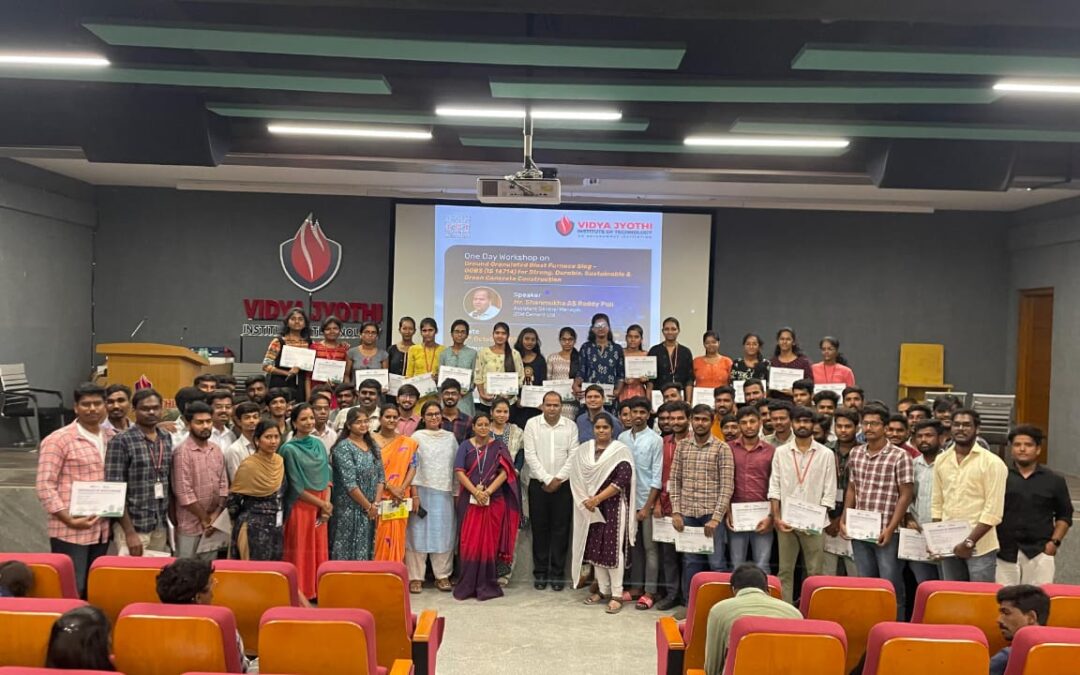
workshop on Ground Granulated Blast Furnace Slag (GGBS)
The Civil Engineering Department of Vidya Jyothi Institute of Technology (VJIT) organized a workshop on Ground...
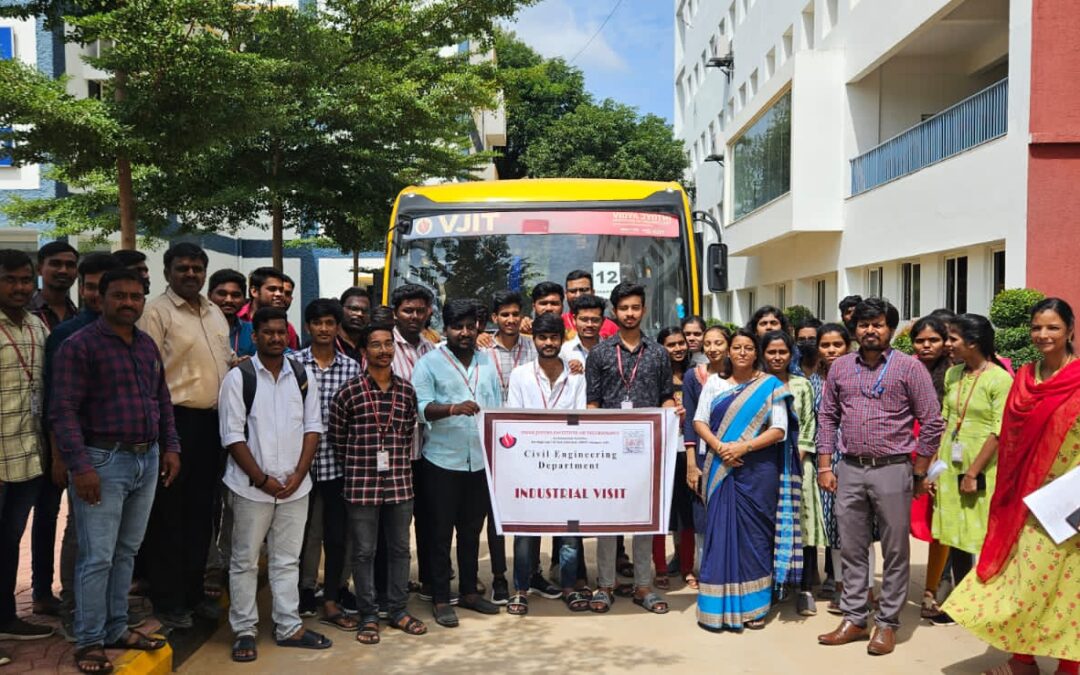
Industry Visit
On September 17th 2023 VJIT civil engineering students ( first year and final year) visited CII - sohrabji godrej...
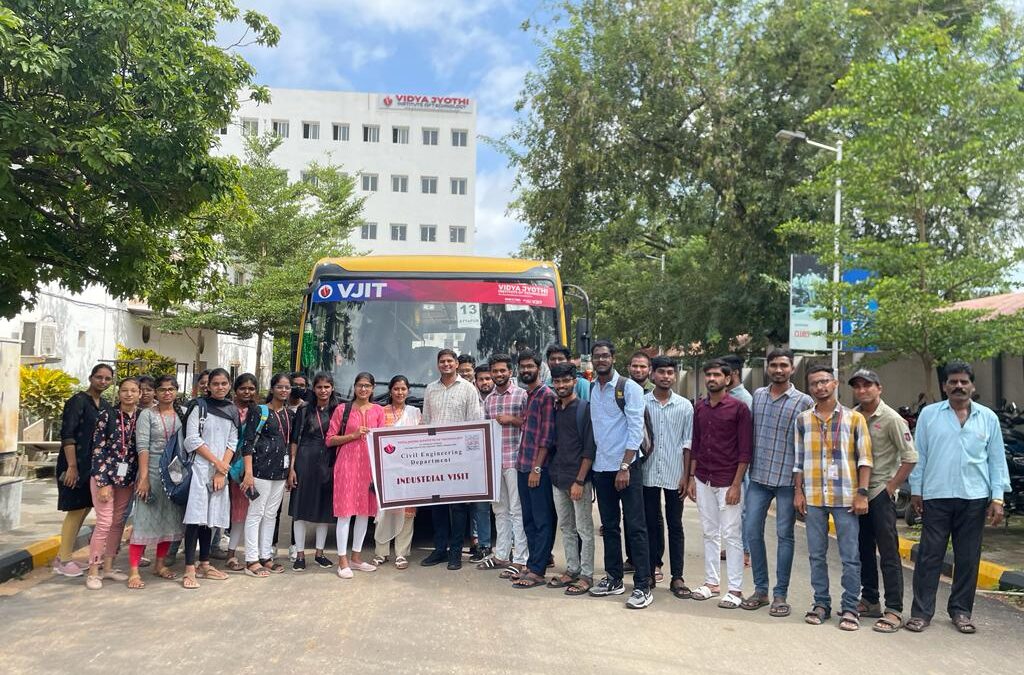
Industrial visit to Secunderabad railway station
An Industrial visit to Secunderabad railway station is conducted by the Department of Civil Engineering on 16th...
Achievements
Department Achievements
- Civil B. Tech Program have been accredited by NBA, valid till 2024.
- Received Jury ICI Young Engineer Category award to the ICI students chapter of VJIT, of the year 2020 in Telangana from professional body, Indian Concrete Institute at state level in a year.
- Received Best Student Chapter Award for the year 2019 in Telangana from professional body, Indian Concrete Institute at state level in a year.
Faculty Achievements
- Dr Pallavi Badry, Professor & Head, CE received ICI Young Engineer Category award of the year 2020 of Telangana by Indian Concrete Institute, Telangana Chapter.
- Dr Pallavi Badry, Professor & Head, CE, Co-chaired a session (Session 13) in 3-day International Conference on Transformations in Engineering and Educations (ICTIEE20) during Jan, 6th to 8th ,2020 organized by Anurag university in collaboration with Indo Asian collaboration committee.
- Dr Pallavi Badry, Professor & Head, CE received International Travel Grant (ITS-SERB) by Science & Engineering board, New Delhi to present her research in International Congress and Exhibition Sustainable Civil Infrastructures: Structural Integrity at Cairo, Egypt, During Nov 24th to 28th 2018, organized by Egypt Government.
- Dr Pallavi Badry, Professor & Head, CE and Ms. Swathi, Assistant Professor, CE Best Paper Award with cash price for Development of educational Model of the shake table to access the building response under Earthquake in 1st National Conferences on Advances of Construction Engineering for Sustainability (NCCS 17). 6th October 2017 at ICFAI Tech School Hyderabad.
- Dr S Srihari, Professor, CE, received 2 Gold Medals for courses Strength of Materials and Design of Reinforced Concrete Structures in NPTEL in a year 2019.
- Dr S Srihari, Professor, CE, Received Collaborative Research Grant under TEQIP-III by JNTUH, for the project Microbially Induced Calcite Precipitation For Crack remediation in concrete structure , in year 2019
- Dr N Sudharsan, Professor, CE received Outstanding Thesis in the Field of Concrete in Telangana for 2020 by Indian Concrete Institute, Telangana Chapter.
- Dr Kamalini Devi, Assoc. Professor, CE, Received International Travel Grant (ITS-SERB) by Department of Science & Technology, New Delhi to present paper at International Conference at River Flow 2018 at Irstea, Lyon-Villeurbanne, France.
- Dr Kamalini Devi received Snigdhashri Patra Memorial Gold medal for the Best Ph.D Thesis of 2017-18 an endowment prize for the year of 2018 at 16th Convocation, NIT- Rourkela.
- Dr Kamalini Devi, Assoc. Professor, CE, Received Er. Govinda Chandra Sahu award from the Institution of Engineer India, Odisha State centre in 2019 for her outstanding contribution in research in the area of water recourses and Engineering .
- Dr Kamalini Devi, Assoc. Professor, CE received Gold Medal for the course Water Supply Engg in NPTEL in year 2020.
- Dr Kamalini Devi, Assoc. Professor, CE received Silver Medal for the course Fluid Mechanics in NPTEL in year 2019 .
- S. Nagarjuna, Assistant Professor, CE received Silver Medal for the courses Strength of Materials in NPTEL in a year 2018.
- Mr. G. Srinath, Assistant Professor, CE received, Assistant Professor, CE, Received cash prize for a Guiding Students for poster presentation ASCE-IGS conference and seeking a second position in poster presentation, organized by MEC College in a year 2019.
- Dr Kamalini Devi, Associate Professor of Department of Civil Engg had been invited for expert lectures at NIT Rourkela in 2018 for her work in the field of River Hydraulics.
- Dr Kamalini Devi, Associate Professor of Department of Civil Engg has visited many reputed foreign universities Such As Sheffield University, UK, St Louis University, USA, University of Leeds, UK, Utah State University, USA,University ofIrestea, Lyon (France), University of Utah (USA) to present her research work and it’s related discussion.
- Dr Kamalini Devi, Associate Professor of Department of Civil Engg has reviewed many reputed journals such as Journal of fluid mechanics, Journal of Water Resources management, Elsevier, Flow Measurements and Instrumentations, Elsevier, International Journal of Sediment transport, Elsevier, Advances in Water resources Engineering, Elsevier, Journal of Hydraulic research, ISH, Taylor and Francis.
Professional Bodies & Clubs
Clubs
- DELTA Club
- HITA
- Street Cause
- Yukthi
- Photography Club
Industry & Academic Collaborations
- National Academy of Construction
- Reliable Environmental Services
- Possibuilt Building Technology
- Smart infrastructural Engineering service
- CADD Centre Training Services Pvt.Ltd
- DTM Geocivil Consulting
- KG Mech Electro Mechanical private limited
- Unique Survey Solutions
Other Information
Trends in Technology
| Year | Name of the capability enhancement program | Date of implementation (DD-MM-YYYY) | Number of students enrolled | Name of the agencies/consultants involved with contact details (if any) |
| 2016-17 | Career Counsselling-A Seminar on Innovative materials in Civil Engg | 22-07-2016 | 146 | Er. Suresh kumar.Project Engineer , Aparna Constructions , Hyderabad. |
| 2017-18 | Career Counsselling-A technical talk on Interactive effects of air pollution and climate change on forest eco systems | 07-10-2017 | 212 | Prof.K.V.S.G. Murali Krishna, JNTUK |
| 2018-19 | Career Counsselling-A Guest Lecture on “Entrepreneur Journey” | 01-10-2018 | 158 | Mr. Sri Charan Lakkaraju, CEO , Stumagz, Hyderabad |
| 2018-19 | Career Counsselling-A Guest Lecture on “Integrated design approach for fast track Construction | 23-03-2018 | 197 | Mrs. AR. Er. S.P. Anchuri, Vice-president (south), Indian Association of Structural Engineers, Hyderabad. |
| 2019-20 | Career Counsselling-Three Weeks Online Internship | 17-08-2020 | 146 | Ultra Tech Pvt Ltd |
| 2019-20 | Career Counsselling-A Technical Talk on the application of CADD in Technical practices | 10-01-2020 | 87 | Mr. Jagdish Kumar, Centre Head, CADD Centre, Hyderabad. |
| 2019-20 | Career Counsselling-One Day workshop on Entrepreneurship and growth in construction Industry. | 05-01-2020 | 52 | Er. Srinivas Rao , Reginal Head , Ultratech Pvt Ltd. Hyderabad |
| 2019-20 | Awarness-One Day Seminar On “Cyber Crime Awarness” Under Cyber Jagruthi Programme | 02-11-2019 | 96 | Mr. Rupesh Mittal Head-Cyber Jagruthi Programme, Hyderabad |
| 2019-20 | Career Counsselling-One Day Seminar on Entrepreneurship and Start- ups across inter disciplinary engg courses : Opportunities for youth | 01-11-2019 | 106 | Dr. Y.V.Rao, Prof and Dean- Research and Development |
| 2019-20 | Career Counsselling-One Day Seminar on “Career Opportunities in Civil Engg. | 25-10-2019 | 223 | Mr. CH. Ravi Kumar, AGM in NAC Mr. K. Samiddin, AGM, Manhattan reviews,Hyderabad. |
| 2019-20 | Career Counsselling-One Day Workshop on Career opportunities | 22-01-2019 | 215 | Mr.Ravikumar, Executive Director , NAC, Hyderabad |
Resources
Teaching & Learning
Innovative Teaching Techniques
Teaching is an art and science. Teaching is a process of imparting knowledge and skills. It is a systematic process based on some educational objectives to communicate.
The following innovative teaching methods are being adopted:
Interactive Learning
Interactive learning can take many different forms. Students strengthen their critical thinking and problem-solving skills using a much more holistic approach to learning. Interactive learning can take place across the curriculum with technology.
Collaborative Learning
“Collaborative learning is an umbrella term for a variety of educational approaches involving joint intellectual effort by students, or students and teachers together. Usually students are working in groups of two or more, mutually searching for understanding, solutions or meanings, or creating a product.
Collaborative learning activities vary widely, but most center on students’ exploration or application of the course material, not simply the teacher’s presentation or explication of it”.
Why use cooperative learning? To..
- promote student learning and academic achievement
- enhance student satisfaction with their learning experience
- help students develop skills in oral communication
- develop students skills
- promote student self-esteem
5 Elements of cooperative learning
- Positive interdependence
- Face-to-face interaction
- Individual and group accountability
- Interpersonal and small group skills
- Group processing
Flipped Classroom
A flipped classroom is an instructional strategy and a type of blended learning that reverses the traditional learning environment by delivering instructional content, often online, outside of the classroom. It moves activities, including those that may have traditionally been considered homework, into the classroom. In a flipped classroom, students watch online lectures, collaborate in online discussions, or carry out research at home and engage in concepts in the classroom with the guidance of a mentor.
The flipped classroom intentionally shifts instruction to a learner-centered model in which class time explores topics in greater depth and creates meaningful learning opportunities, while educational technologies such as online videos are used to ‘deliver content’ outside of the classroom. In a flipped classroom, ‘content delivery’ may take a variety of forms.
Role Play
Role-playing is the changing of one’s behavior to assume a role, either unconsciously to fill a social role, or consciously to act out an adopted role.
- To refer to the playing of roles generally such as in a theatre, or educational setting;
- To refer to taking a role of an existing character or person and acting it out with a partner taking someone else’s role, often involving different genres of practice.
Think-Pair-Share
Think-Pair-Share (TPS) is a collaborative learning strategy in which students work together to solve a problem or answer a question about an assigned reading. This technique requires students to (1) think individually about a topic or answer to a question; and (2) share ideas with classmates. Discussing an answer with a partner serves to maximize participation, focus attention and engage students in comprehending the reading material.
Benefits:
- The Think-Pair-Share strategy is a versatile and simple technique for improving students’ reading comprehension.
- It gives students time to think about an answer and activates prior knowledge.
- TPS enhances students’ oral communication skills as they discuss their ideas with one another.
- This strategy helps students become active participants in learning and can include writing as a way of organizing thoughts generated from discussions.
Case Based Learning
This method is learner-centered with intense interaction between participants as they build their knowledge and work together as a group to examine the case
The instructor’s role is to facilitate the students collaboratively analyze and address problems and resolve questions
Interactive Learning
Interactive Learning is a hands-on, real-world approach to education ‘Inetractive learning actively engages the students in wrestling with the material
It reinvigorates the classroom for both students and faculty. Lectures are changed into discussion and students and teachers become partners in the journey of knowledge acquisition
Students strengthen their critical thinking and problem-solving skills using a much more holistic approach to learning
Open Educational Resources
Open educational resources (OER) are freely accessible, openly licensed documents and media that are useful for teaching, learning, and research resources that reside in the public domain or have been released under an intellectual property license that permits their free use and re-purposing by others.
Open educational resources include full courses, course materials, modules, textbooks, streaming videos, tests, software, and any other tools, materials, or techniques used to support access to knowledge.
Like Blog, MOOC(Massive Open Online Course), Moodle etc.




Laboratories
Surveying & Geomatics Lab
Course Outcomes
At the end of the course, the student will be able to:
- Apply the principle of surveying for civil Engineering Applications
- Calculation of areas
- Drawing plans and contour maps using different measuring equipment at field level
- To learn the applications of GPS in surveying system
- Write a technical laboratory report
List of experiments
- Survey of an area by chain surveying.
- Determination of two inaccessible points by using prismatic compass.
- Surveying of a given area by prismatic compass (closed traverse) and plotting after adjustment.
- Radiation & intersection method by plane table survey.(Any one exercise)
Exercise on fly levelling using dumpy level. - An exercise on L.S, C.S and Plotting
- Trigonometric leveling – Heights and distance problem
- Determination of Area & Remote height using total station
- Traversing & Contouring using total station
- Distance, gradient, Diff. height between two inaccessible points using total station
- Study on use of GPS for data collection
- Collection of Point Data, Line Data, and Polygon Data using GPS.
Engineering Geology Lab
Course Outcomes
At the end of the course, the student will be able to:
- To study the physical properties and identification of minerals referred under the theory.
- Describe and identify the rocks referred under the theory.
- Illustrate the Microscopic study of rocks.
- Interpret and draw the sections for geological maps showing tilted beds, faults, unconformities etc.,
- Solve the simple structural geological problems.
List of experiments
- Study of physical properties and identification of minerals.
- Study of physical properties and identification of rocks (Igneous Rocks)
- Study of physical properties and identification of rocks (Sedimentary Rocks)
- Study of physical properties and identification of rocks (Metamorphic Rocks)
- Microscopic study of rocks
- Microscopic study of Minerals
- Study of Geological Structures like Faults and Folds
- Study of Geological Structures like Tilted Bed models and unconformities
- Interpretation and drawing of sections for geological maps showing tilted beds, faults, uniformities etc.
- Calculation of Dip using strike method.
- Calculation of Dip using dip method.
- Calulation of Dip using different angels/inclinations.
Environmental Engineering Lab
Course outcomes
After the completion of the course student should be able to
- Understand principles and their practical application in water treatment.
- Determine physical, chemical and biological characteristics of water and wastewater.
- Determine the optimum dose of coagulant.
- Estimate the chloride, nitrate and iron content in water.
- Summarize the solutions using titration, conductivity meter, pH meter, turbidity meter and DO meter.
List of experiments
- Determination of pH and turbidity
- Determination of Conductivity and total dissolved solids
- Determination of Alkalinity and Acidity
- Determination of Chlorides
- Determination of Iron
- Determination of Dissolved Oxygen
- Determination of Nitrates
- Determination of Optimum dose of Coagulant
- Determination of Chlorine Demand
- Determination of B.O.D
- Determination of C.O.D
- Presumptive Coliform test
Solid Mechanics Lab
Course Outcomes
At the end of the course the student will be able to:
- Predict the behavior of materials under impact, hardness, tensile and compressive loads.
- Determine elastic constants by flexural and torsion test.
- Determine the spring constants under various loadings.
- Understand the deflection of materials under bending
- Understand basic material properties stress and strain.
List of Experiments
- Tension test
- Bending test on (Steel / Wood) Cantilever beam.
- Bending test on simple support beam.
- Torsion test
- Hardness test
- Spring test
- Compression test on wood or concrete
- Impact test
- Shear test
- Verification of Maxwell’s Reciprocal theorem on beams.
- Use of electrical resistance strain gauges
- Continuous beam – deflection test.
Computer Aided Drafting of Building Lab
At the end of the course, the student will be able to:
- Assess the Software with aiding source.
- Draft the Plan and Elevation & Sectional views of the buildings.
- Develop the components of the building.
- Replicate the detailing of framed and Industrial structures.
- Interpret the isometric and orthogonal projection of buildings.
List of Experiments
- Introduction to the basic commands of CADD software.
- Practice exercises on basic commands of CAD software.
- Drawing of single line plans Single storey buildings.
- Drawing of plans of Multi storied buildings with Brick thickeness (Max G+2)
- Developing sections and elevations of Single storey buildings
- Detailing of different types (any 2 types) of doors and its components by using CAD
- Detailing of different types (any 2 types) of windows and its components by using CAD
- Detailed drawing of Roof trusses by using CAD
- Exercises on the development of working of building by using CAD
- Planning of commercial building (School building)
- Fundamentals of Building Information Modelling (BIM)
- Demonstrationon workflow in using BIM in the building life cycle
Geotechnical Engineering Lab
Course Outcomes
At the end of this course the student will be able to
- Demonstrate the engineering properties the soil.
- Illustrate the field bulk and dry density of cohesive and cohesion less soils.
- Classify the Coarse grained soils based on sieve analysis test & a grain size distribution curve.
- Compute the shear strength of cohesive and cohesion less soil.
- Determine the permeability of coarse grained soil and fine grained soil by constant head permeability test and falling head method.
List of Experiments
- Atterberg’s limits
- Fileld density- core cutter and sand replacement method
- Grain size analysis
- Permeability of soil, constant head
- Permeability of soil variable head test.
- Compaction test
- B.R test
- Consolidation test
- Unconfined compression test
- Triaxial compression test
- Direct shear test
- Vane shear test.
Fluid Mechanics &Hydraulic Machinery
Course Outcomes
Students who successfully complete this course will have demonstrated ability to:
- Describe the basic measurement techniques of fluid mechanics and its appropriate application.
- Interpret the results obtained in the laboratory for various experiments.
- Discover the practical working of Hydraulic machines- different types of Turbines, Pumps, and other miscellaneous hydraulics machines.
- Compare the results of analytical models introduced in lecture to the actual behavior of real fluid flows and draw correct and sustainable conclusions.
- Write a technical laboratory report
List of experiments
- Calibration of venture meter and Orifice meter
- Determination of coefficient of discharge for a small orifice/mouthpiece by constant head method
- Calibration of contracted rectangular notch and triangular notch
- Determination of friction factor of a pipe
- Determination of coefficient for minor losses.
- Verification of Bernoulli’s equation.
- Impact of jet on vanes
- Study of hydraulic jump.
- Performance test on Pelton wheel turbine.
- Performance test on Francis turbine
- Performance characteristics of a single stage /multi stage centrifugal pump.
- Performance characteristics of a reciprocating pump
Concrete & Highway Materials Lab
Course Outcomes
- Examine the experimental strength of aggregate materials as per codal provisions.
- Illustrate the stability & properties of bituminous materials & mixes by conducting tests.
- Determine the properties of cement by conducting the test.
- Define the workability of fresh concrete by conducting tests.
- Estimate the strength of hardened concrete by conducting destructive and non destructive testing.
LIST OF EXPERIMENTS
Road Aggregates
- Aggregate Crushing Value.
- Aggregate Impact Test.
- Specific Gravity And Water Absorption.
- Attrition Test.
- Abrasion Test.
- Shape Test.
Bituminous Materials
- Penetration Test.
- Ductility Test.
- Softening Point.
- Flash And Fire Point.
Cement and concrete
- Tests on cements
- Fineness of cement.
- Normal Consistency of cement
- Initial And Final Setting Time of cement.
- Specific Gravity and Soundness of cement.
- Compressive Strength of cement.
Tests On Concrete
- Workability Test on Concrete By Compaction Factor , Slump cone and Vee- Bee.
- Compressive Strength and Young’s Modulus of Concrete.
- Bulking of Sand.
- Non Destructive Testing on Concrete (For Demonstration).
Curriculum
Research & Development
Overview
The Department has Exclusive R&D cell for providing various opportunities for enhancing the research and innovative skills of Faculty and students
Objectives
- To organize various workshops/ seminar on Writing of research articles, filing patents , writing books and improve the quality of publications
- To prove awareness on collaborative research
- Organize Conferences for providing platform to share knowledge in the recent trends
Expertise
| Research Group Name | Research Group Head |
| Geotechnical Engineering | Dr. Pallavi Badry |
| Special Concrete | Dr.Shrihari |
| Water Resources and Transportation engineering | Dr. Kamalini Devi |
| Innovative Brick and Brick Masonry Structures | Dr.N. Sudharsan |
Activities
| Name of The Research Laboratory | Activities |
| Geotechnical Engineering Research Group |
|
| WRE & Allied Engineering Research Group |
|
| Structural Engineering Research Group |
1. One day workshop on Innovative Concretes was held on 19 December 2016 2. A Seminar on Innovative materials in Civil Engineering was conducted on 22 July 2016 3. Two days seminar on Development of green material for green building technologies was held on 06 & 07 March 2017 4.Two days national seminar on Repair and Rehabilitation of the Construction Structures conducted on 16 & 17 March 2018 5. Inauguration of ICI Knowledge center on 14 September 2019. |
Projects and Grants
| Name of the Investigator | Project Title | Funding agency | Year | Amount Rs | Status |
| Dr E Saibaba Reddy | Three day faculty development program on Advances in Finite Element Methods | TEQIP –III JNTUH | 2020-2021 | 115000.00/- | Completed |
| Dr Shrihari | Microbially Induced Calcite Precipitation For Crack remediation in concrete structure | TEQIP –III JNTUH | 2019-2020 | 2,99,000.00/- | On- Going |
| Dr Pallavi Badry | International conference on innovative infrastructure solutions at Cairo, Egypt | DST SERB Travel grant | 2018-2019 | 1,00,000/- | Completed |
Consultancy
| Project Title | Duration | Funding Agency | Amount | Year |
|---|---|---|---|---|
| Conditional Assessment of existing 2-storeyed building | 1 month | SVS Projects Private Ltd | 36200 | 2018-2019 |
| Soil test conducted for G+3 residential building at Ragendra Nagar | 1 month | Bhagyashree Constructions | 25000 | 2017-2018 |
| Soil test conducted for G+2 residential building at Lingampally | 1 month | Jhandyala Civil Structural and Architectural Consultants | 20400 | 2016-2017 |
Patents
| Name of the faculty | National/ International | Name of the Invention | Filled Year | Patent Number | Status |
| Dr Pallavi Badry | International | APIC- Recycling C&D Waste: Automatic Process for Recycling C&D Waste Including Concrete Part and Convert Useful Material | 2020 | 2020102728 | Granted |
| Dr. S. Shrihari | National | System And Method For Sensor Based Protection of Loading Frame On A Concrete Sample | 2020 | 202041042281 | Published |
| Dr. N. Sudharsan | National | Glasscrete Building Blocks | 2013 | 5315/CHE/2013 | Granted |
| Dr. N. Sudharsan | International | IWNA-Village Sanitation: Intelligent way to Sanitation Village and Notify the Authority. | 2020 | 2020104194 | Applied |
| Dr. Kamalini Devi | International | IBAM-Mineral Water Quality Testing System: IoT-Based Automatic Mineral Water Quality Testing and Management System. | 2020 | 2020103845 | Applied |
Placements
Placements Information
Internship
2019- 2020 Academic Year
Testimonials
Honored with Concrete Excellence Award from Indian Concrete Institute, 2019
Inaugurated ICI Knowledge Centre for Telangana region on 14th Sep, 2019
VJIT, with the splendid faculty and a balanced approach to learning is a place to nurture our career. I am thankful to all the faculty & our revered HOD, Pallavi madam, who is the guiding force in motivating us to develop our career perspectives.I am really proud to be the student and alumni of VJIT…
Jagadish ,2015-19
GET , Aparna Constructions and Estates Private Limited
Mallesh Site Engineer, HMWSSB
Roll of Honors
Toppers – Batch Wise
| BATCH | REGISTER NO | NAME | PERCENTAGE |
| 2016-20 | 16911A01A9 | P. HARIKA | 92.37 |
| 2015-19 | 15911A01A2 | SARDA GOPAL | 86.21 |
| 2014-18 | 14911A0158 | B.NAVYA | 81.25 |
| 2013-17 | 13911A0130 | K. SREEJA | 82.95 |
Toppers – Semester Wise
Contact Us
Dr. Pallavi Badry
Professor &HOD BE(VNIT),Ph.D(IIITH)
8978567328
[email protected]
Mentor List
| Year | Mentor | Roll No’s | |
|---|---|---|---|
| IIA | Mr S Raghavendra | 19911A0101 to 19911A0115 | [email protected] |
| IIA | Mr G Sreenath | 19911A0116 to 19911A0131 | [email protected] |
| IIA | Mr A L Prabhakar | 19911A0132 to 19911A0145 | [email protected] |
| IIB | Mr N Prem Kumar | 19911A0146 to 19911A0160 | [email protected] |
| IIB | Ms G Sreeja | 19911A0161 to 19911A0176 | [email protected] |
| IIB | Ms T Sharada | 19911A0177 to 19911A0190 and 18911A0104 | [email protected] |
| IIA&B | Ms Chirasmayee Savitha | All Lateral Entries | [email protected] |
| IIIA | Mr M Ashwin Kumar | 18911A0101 to 18911A0122 | [email protected] |
| IIIA | Mr I Praveen Kumar Reddy | 18911A0123 to 18911A0142 | [email protected] |
| IIIA | Ms M Mounika | 18911A0143 to 18911A0161 and Re-admin: 17911A0150 | [email protected] |
| IIIB | Mr G Satyaprakash | 18911A0162 to 18911A0182 | [email protected] |
| IIIB | Mr A D Sandeep Kumar | 18911A0183 to 18911A01A3 | [email protected] |
| IIIB | Mr G Ratnakar Goud | 18911A01A4 to 18911A01B1, Re-admin : 17911A0149 & 1A9 | [email protected] |
| IIIA&B | Mr A Venkat Sai Krishna | 19115A0101 to 19915A0121 | [email protected] |
| IVA | Ms T Deepika | 17911A0101 to 17911A0120 | [email protected] |
| IVA | Mr Vitthal Biradar | 17911A0121 to 17911A0140 | [email protected] |
| IVA | Mr S Nagarjuna | 17911A0141 to 17911A0160 | [email protected] |
| IVB | Mr K Satyanarayana | 17911A0161 to 17911A0180 | [email protected] |
| IVB | Mr E Giri prasad goud | 17911A0181 to 17911A01A0 | [email protected] |
| IVB | Ms V Swathi | 17911A01A0 to 17911A01C0 & (16911A0129 Re-Admn) | [email protected] |
| IVA&B | Mr P Naga Mohan | 18915A101 to 18915A124 | [email protected] |
